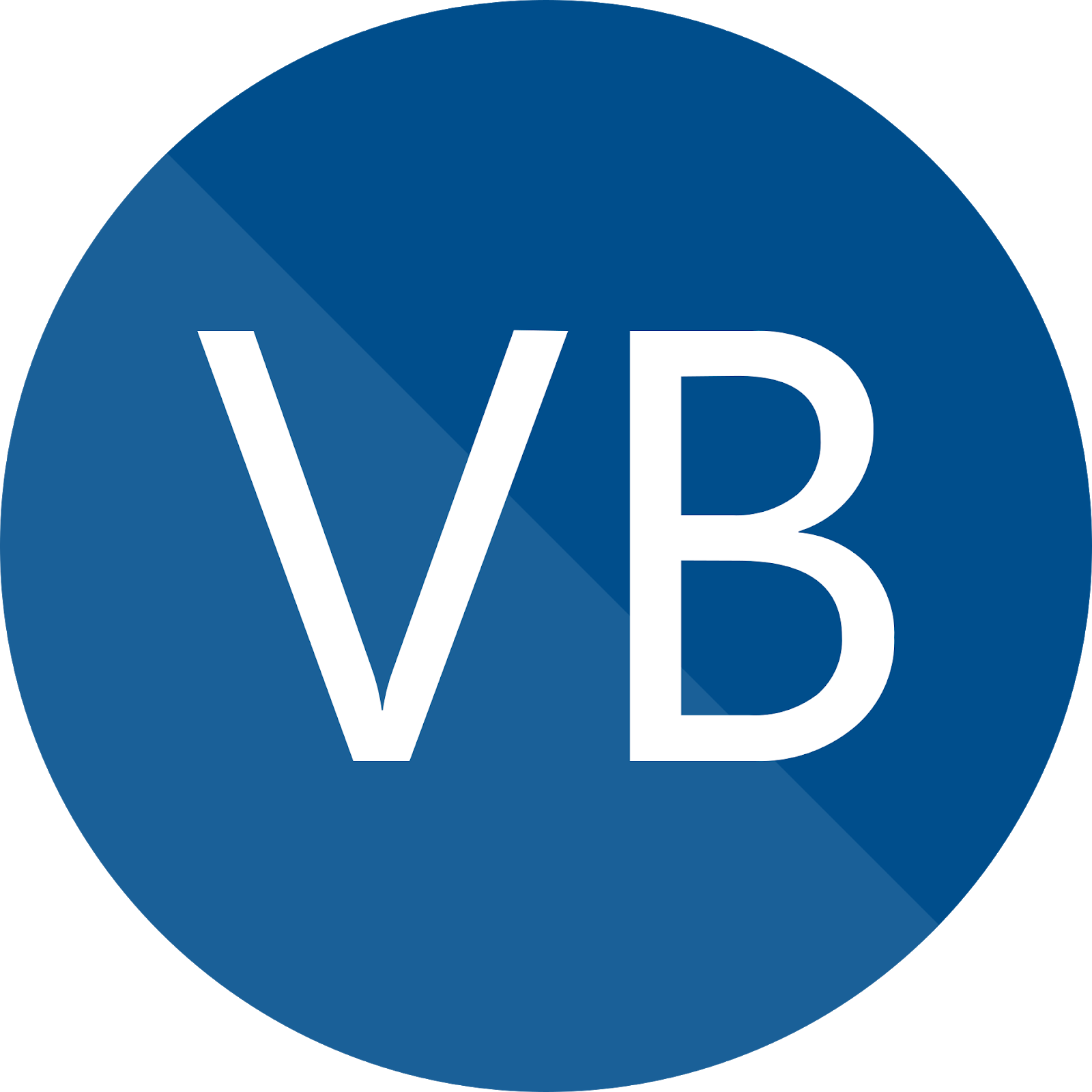Exploring The World Of VB: A Comprehensive Guide
VB, or Visual Basic, is a versatile programming language that has been a cornerstone in the world of software development for many years. As technology evolves, understanding the intricacies of VB becomes essential for both aspiring and seasoned developers. In this article, we will delve into the depths of VB, exploring its history, features, and applications in modern software development. Whether you are a beginner looking to learn or an expert seeking to refresh your knowledge, this guide aims to provide valuable insights.
Visual Basic is not just a programming language; it is an environment that empowers developers to create robust applications with ease. Its intuitive interface and event-driven programming model make it a popular choice for many. Throughout this article, we will cover everything from the basic syntax of VB to advanced concepts, ensuring you have a comprehensive understanding of this powerful tool.
By the end of this guide, you will have gained knowledge about VB that can enhance your programming skills and open new opportunities in your career. So, let's embark on this journey to uncover the potential of Visual Basic!
Table of Contents
- 1. The History of Visual Basic
- 2. Key Features of VB
- 3. Applications of Visual Basic
- 4. Biography of Visual Basic
- 5. Understanding VB Syntax
- 6. Advanced Concepts in VB
- 7. Resources for Learning VB
- 8. Conclusion
1. The History of Visual Basic
Visual Basic was developed by Microsoft in the early 1990s as an evolution of the BASIC programming language. The initial release, VB 1.0, allowed users to create Windows applications with a graphical user interface (GUI). Over the years, VB has undergone several significant updates, including the introduction of Visual Basic .NET (VB.NET), which integrates the language with the .NET framework.
Understanding the history of VB is crucial as it highlights the language's evolution and adaptability in the fast-paced tech world. The transition to VB.NET marked a significant shift, allowing developers to create more complex applications and leverage modern programming paradigms.
2. Key Features of VB
Visual Basic is known for several key features that enhance its usability and effectiveness:
- Integrated Development Environment (IDE): VB provides a user-friendly IDE that simplifies coding through drag-and-drop components.
- Event-Driven Programming: Developers can create applications that respond to user actions, making the programming process more intuitive.
- Rich Libraries: VB comes with extensive libraries that provide pre-built functions and controls to expedite development.
- Compatibility: VB applications can easily interact with other Microsoft products, such as Excel and Access, making it a versatile choice for enterprise solutions.
3. Applications of Visual Basic
Visual Basic is widely used in various domains, including:
- Desktop Applications: Many businesses use VB to develop internal applications for data entry, reporting, and inventory management.
- Office Automation: VB for Applications (VBA) allows users to automate repetitive tasks in Microsoft Office programs.
- Web Development: With VB.NET, developers can create dynamic web applications using ASP.NET framework.
4. Biography of Visual Basic
Visual Basic has a rich background as a programming language. Its creation by Microsoft has led to its widespread adoption across various industries. Below is a summary of its key milestones:
| Year | Milestone |
|---|---|
| 1991 | Release of Visual Basic 1.0 |
| 1998 | Release of Visual Basic 6.0 |
| 2002 | Introduction of Visual Basic .NET (VB.NET) |
4.1 Personal Data and Biography
Visual Basic, as a programming language, does not have a personal biography. However, its impact on software development is significant, and its community continues to thrive as developers create innovative applications using this language.
5. Understanding VB Syntax
One of the primary reasons developers choose VB is its straightforward syntax, which allows for easy comprehension and quick learning. Below are some fundamental aspects of VB syntax:
- Variables: VB uses the 'Dim' statement to declare variables, such as
Dim x As Integer. - Control Structures: VB supports standard control structures like If...Then, For...Next, and Do...Loop.
- Functions: Functions are defined using the
Functionkeyword, allowing for modular code.
6. Advanced Concepts in VB
For developers looking to deepen their expertise, understanding advanced concepts in VB is essential:
- Object-Oriented Programming (OOP): VB.NET supports OOP principles, enabling developers to create reusable and maintainable code.
- Error Handling: VB provides structured error handling using
Try...Catch...Finallyblocks. - LINQ: Language Integrated Query (LINQ) allows for easy querying of data in a more readable manner.
7. Resources for Learning VB
To effectively learn Visual Basic, consider using the following resources:
- Online Courses: Platforms like Udemy and Coursera offer comprehensive courses on VB programming.
- Books: Titles such as "Programming in Visual Basic" provide in-depth knowledge.
- Documentation: The official Microsoft documentation is an invaluable resource for developers.
8. Conclusion
In conclusion, Visual Basic remains a powerful tool in the world of programming. Its simplicity and versatility make it an excellent choice for both novice and experienced developers. By understanding its history, features, applications, and advanced concepts, you can leverage VB to create innovative software solutions.
We encourage you to explore more about Visual Basic and share your experiences in the comments below. If you found this article helpful, consider sharing it with others who may benefit from it. Don't hesitate to check out our other articles for more insights and resources!
Thank you for joining us on this exploration of Visual Basic. We hope to see you again soon!
Alfredo Ahnert: Journey Of A Visionary Artist
Understanding ASML Stock: A Comprehensive Guide To Investing In Semiconductor Technology
Alycia Bellamy: A Comprehensive Insight Into Her Life And Career


